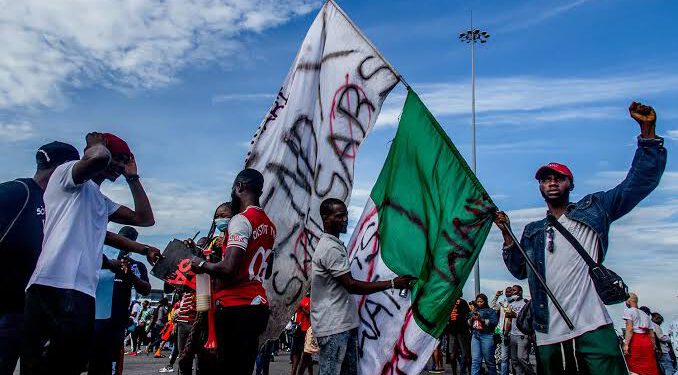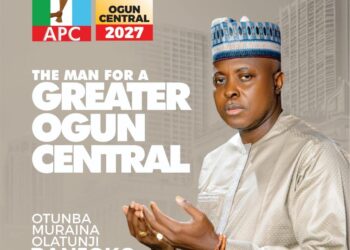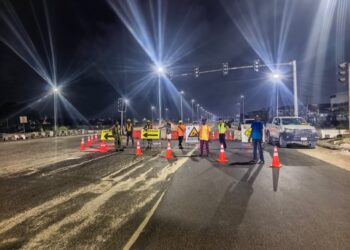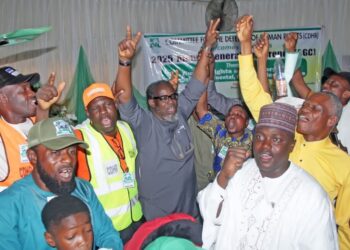•By Dave Agboola
As the planned nationwide hunger and hardship protest approaches, governors, security agencies, and other stakeholders are calling for dialogue and urging the organizers to reconsider their plan. The protest, slated for August 1-10, 2024, aims to draw attention to the worsening plight of Nigerian citizens. However, leaders are warning that the demonstration could lead to violence, loss of life, and property, as seen during the #EndSARS protest.
The National Orientation Agency (NOA) has identified some of the sponsors and likely flashpoints, and the government is working to forestall any violent occurrences.
Governors Inuwa Yahaya of Gombe State and Mai Mala Buni of Yobe State have appealed to the youth in their states not to join the protest. Governor Yahaya particularly urged the police to enforce law and order and stop any demonstrations in the state, while Governor Buni advised the youths to use social media responsibly and shape a positive narrative about the state and country.
The proposed nationwide protest, no doubt, has been generating a lot of buzz and concern among Nigerians. While the organizers of the protest have cited various reasons for their action, including the worsening economic situation, hunger, and hardship, it is essential to consider the potential consequences of such a protest and why it should be shelved.
All over the world, it is an acceptable norm for people to make known their grievances through protest; in fact, it is their fundamental right to peaceful protest, a freedom that should not be disputed!
However, to ensure the effectiveness and safety of such demonstrations, it is crucial that protests are structured and well-organized. This means that protesters should have a clear understanding of their demands and be able to articulate them in a concise and reasonable manner.
A well-structured protest should have a clear set of demands that are understandable to the target audience, in this case, the government. Protesters should itemize their demands and direct them towards the government, specifying what they want and how they want it to be addressed. Additionally, it is essential to have a spokesperson for negotiation, someone who can engage with the government and other stakeholders to find a resolution.
At the same time, protesters should be specific about the duration of the protest and the objectives they hope to achieve. If the protest is planned for 10 days, for instance, it should be stated clearly, along with the goals and milestones that need to be accomplished during that period. This will help to maintain focus and ensure that the protest remains on track.
It is also important to consider the possibility that some or all of the demands may be met before the protest is concluded. In such cases, it is essential to have a plan in place for winding down the protest and declaring victory. As the saying goes, “what if all the demands were met on the second day?” This highlights the need for a flexible and adaptive approach to protesting, one that is open to negotiation and willing to adjust to changing circumstances. Unfortunately, the proposed protest does not seem to align with all these.
From all indications, the proposed protest looks very uncoordinated, as till now no one in particular can be pointed out as their leader. Most of those that appear to be behind it too are more of disgruntled election losers who would do anything to destabilise government of the day. In other words, if this protest is allowed to stay, there are dangers ahead, which could be more of a recipe for chaos!
Obviously, the dangers of the protest are real and should not be taken lightly. Recall that the #EndSARS protest, which was initially peaceful, turned violent and resulted in loss of lives and property. The same could happen again, and the consequences could be devastating.
Moreover, the protest could be hijacked by hoodlums and miscreants, who could use the opportunity to loot and destroy property. This would not only undermine the legitimate grievances of the organizers but also put innocent lives at risk. The people of Kenya, for instance, are not yet done counting their losses owing to the recent protest that erupted in the East African country that led to wanton destruction of property as well as massive looting of innocent people’s goods.
Furthermore, the protest could have a negative impact on the country’s economy, which is already struggling. A prolonged protest could lead to a decline in economic activities, resulting in a loss of revenue for both the government and private businesses. This could have a ripple effect, leading to job losses, reduced investment, and a decline in the standard of living for Nigerians.
Additionally, the proposed protest could undermine the efforts of the government to address the challenges facing the country. The government has already taken steps to address some of the issues raised by the organizers of the protest, such as the increase in the minimum wage and the implementation of social welfare programs. A protest at this time could be seen as an attempt to undermine these efforts and create unnecessary tension in the country.
Also, we must not shy away from the fact that the protest could lead to a breakdown in law and order, which could have far-reaching consequences for the country. The economy could suffer more, and the already precarious security situation could worsen.
In light of these dangers, it is essential to shelve the proposed nationwide strike. Dialogue and engagement with the government and other stakeholders, which the government of the day has embraced, can help address the grievances of the organizers and find solutions to the challenges facing Nigerians.
From all the recent efforts by the current administration, it is evident enough to see that the government has already shown willingness to listen and address the concerns of the organizers.
It is not even surprising that Civil society organizations and other stakeholders are already towing this path of dialogue and engagement. The Nigerian Labour Congress (NLC) has expressed willingness to engage with the government to address the grievances of workers and find solutions to the challenges facing the country.
While the proposed nationwide strike may have been motivated by genuine concerns, it is essential to consider the potential dangers and shelve it. Dialogue and engagement can help address the grievances and find solutions to the challenges facing Nigerians. We should be more interested in working together to build a peaceful and well prosperous Nigeria. Our focus should be more on a better Nigeria for all, through peaceful and constructive engagement!





















